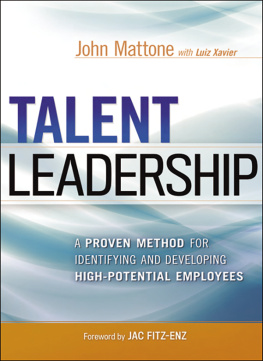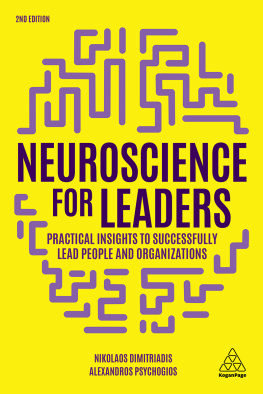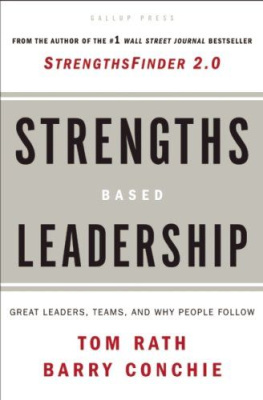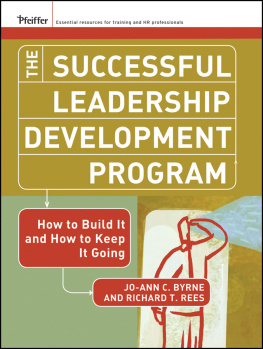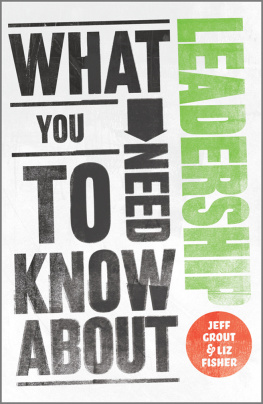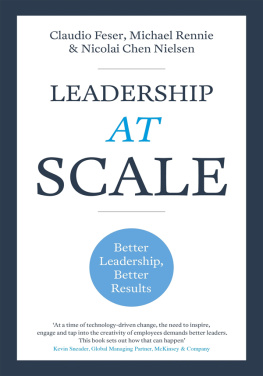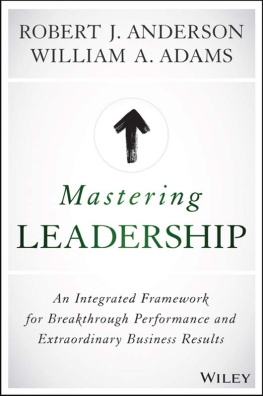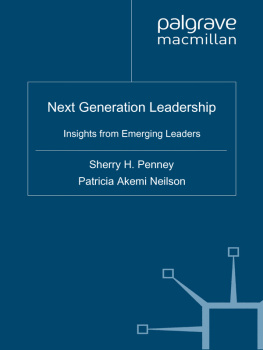How Leaders Improve
A Playbook for Leaders Who Want to Get Better Now
John Gates, PhD, Jeff Graddy, PhD, and Sacha Lindekens, PhD

Copyright 2017 by John Gates, PhD, Jeff Graddy, PhD, and Sacha Lindekens, PhD
All rights reserved. No part of this publication may be reproduced, stored in a retrieval system, or transmitted, in any form or by any means, electronic, mechanical, photocopying, recording, or otherwise, except for the inclusion of brief quotations in a review, without prior permission in writing from the publisher.
Library of Congress Cataloging-in-Publication Data
Names: Gates, John, 1962 author. | Graddy, Jeff, author. | Lindekens, Sacha, author.
Title: How leaders improve : a playbook for leaders who want to get better now / John Gates, PhD, Jeff Graddy, PhD, and Sacha Lindekens, PhD.
Description: 1 Edition. | Santa Barbara : Praeger, [2017] | Includes bibliographical references and index.
Identifiers: LCCN 2017027834 (print) | LCCN 2017030279 (ebook) | ISBN 9781440860584 (ebook) | ISBN 9781440860577 (hardcopy : alk. paper)
Subjects: LCSH: Leadership. | Communication in management.
Classification: LCC HD57.7 (ebook) | LCC HD57.7 .G3778 2017 (print) | DDC 658.4/092dc23
LC record available at https://lccn.loc.gov/2017027834
ISBN: 978-1-4408-6057-7 (print)
ISBN: 978-1-4408-6058-4 (ebook)
21 20 19 18 17 1 2 3 4 5
This book is also available as an eBook.
Praeger
An Imprint of ABC-CLIO, LLC
ABC-CLIO, LLC
130 Cremona Drive, P.O. Box 1911
Santa Barbara, California 93116-1911
www.abc-clio.com
This book is printed on acid-free paper 
Manufactured in the United States of America
Contents
Preface
Imagine you have a goal of being a world-class marathon runner. Lets say you are a decent runner today and have even run a few local marathons, with respectable times, but you are not nearly good enough to win a national-level race. So, how would you go about preparing for your ultimate goal? How would you improve your racing skills so that you were running at a much higher level?
Surely you would not just read about how fast the winning runners ran in the last big race (sure they won, but how did they get that good and that fast?). Nor would you set out to review the collapse of great runners who failed to achieve their potential or bonked in the final mile (that may be interesting, but at best only tells you what not to do), and you certainly would not just cross your fingers and hope you somehow, miraculously outperform all of your previous non-world-class times on the day of the big race (hint: You will not lower your personal best by hoping really hard on race day). But this is what most leaders do in order to get better at leadingthey read books about great leaders, they read cases studies on failed or flawed leaders, and in many cases they just hope that their skills as a leader will grow organically as they move up in organizations.
There is nearly an unlimited supply of books and articles on the topic of leadership, and yet most leaders find it very hard to truly improve their leadership skills because most of the wisdom on the bookshelf to date does not teach leaders HOW to actually get better. While there are plenty of books that spotlight great leaders, and plenty of others that share wisdom about what it takes to be a good or great leader, what makes How Leaders Improve different is that we have created a playbook for how any leader can get better in a practical, immediate way.
Because leadership is a complex phenomenon, leaders often need help to improve their leadership skills. As leadership development consultants, this is what we, the authors, have spent our careers doing, and now we want to share our research and our experience with others through an easy-to-apply book that we believe will strike a chord with any leader who reads it. Thats because How Leaders Improve, while based on research, includes insights and practical recommendations that any leader, or anyone who aspires to be a leader, can apply right away in order to make measurable improvement in how one leads other people.
In many sports, knowing the playbook and what you need to do next helps you get better and ultimately win the game. Similarly, How Leaders Improve gives leaders focus, as well as confidence that taking action based on these recommendations will ensure that they achieve their leadership goals.
How Leaders Improve outlines 10 insights that are based on research the authors have conducted in the real world with leaders, and these insights have been boiled down so that they are easy to understand and easy to apply. The fact that these insights are real-world stories and findings derived from actual leaders in actual organizations lends street credibility to the recommendations and suggests that if a leader follows the playbook outlined in How Leaders Improve, that leader, too, will be able to improve significantly. So, whether you are a leader, an aspiring leader, a teacher of leadership, a leadership development professional, or an organizational decision-maker trying to ensure that your company invests wisely in its leadership development efforts, we believe this book is for you.
Acknowledgments
Many people contributed to this book, and we would like to express our sincere appreciation. First and foremost, we would like to thank our partner at Avion Consulting, Steve Williams, for his expertise, for his integrity, and for being the consummate team player. We couldnt have done this without you, Steve.
We would also like to thank our administrative assistant, Katie Keller, for her tireless work on several of the more technical aspects of this book. Thanks also to Irma Campos, Lizzy Byrd, and David Diaso for their contributions during the early aspects of this project.
If not for clients who allowed us to use data that we gathered over the course of our work with their leaders, we would not have had the basis for our study or book. So, many thanks to Mary Anderson, Jean Erath, Becky Locke, Mary Savage, and Tammy Steele for supporting our study. In addition, we express our gratitude to all of our most improved leadersthe clients who participated in our study and who offered their valuable time and insights into how they actually improved as leaders.
A number of colleagues outside of Avion Consulting provided wise counsel and encouragement throughout this process, and we would like to say a special thank you to Mark Ehrhart, Rob Fazio, Jackie Freiberg, Kevin Freiberg, Himanshu Kalra, and John Stenbeck.
Our excellent literary agent, Leticia Gomez, managed to help these book-publishing rookies get a base hit during our first at-bat, and for that we are very grateful. And our senior editor at Praeger, Hilary Claggett, patiently and skillfully guided us through the process of turning a manuscript into an actual book. Our sincere thanks to both of you.
Finally, of course, we would like to thank our families, whose love and support make it possible for us to do what we do. A heartfelt thanks to Lisa, Tyler, Cameron, and Lindsay; to Jenny, Ava, and Tyler; and to Laura, Taylor, and Reid. We love and appreciate you all more than we can say.
CHAPTER ONE
Why (and How) We Wrote This Book
Why We Wrote This Book
We are leadership development professionals. And while writing a book is fairly common among professionals in our field, this is the first book for any of us. In fact, one of us, when asked about the possibility of writing a book, has often joked that a lifelong goal has been to not write a book.
Next page

